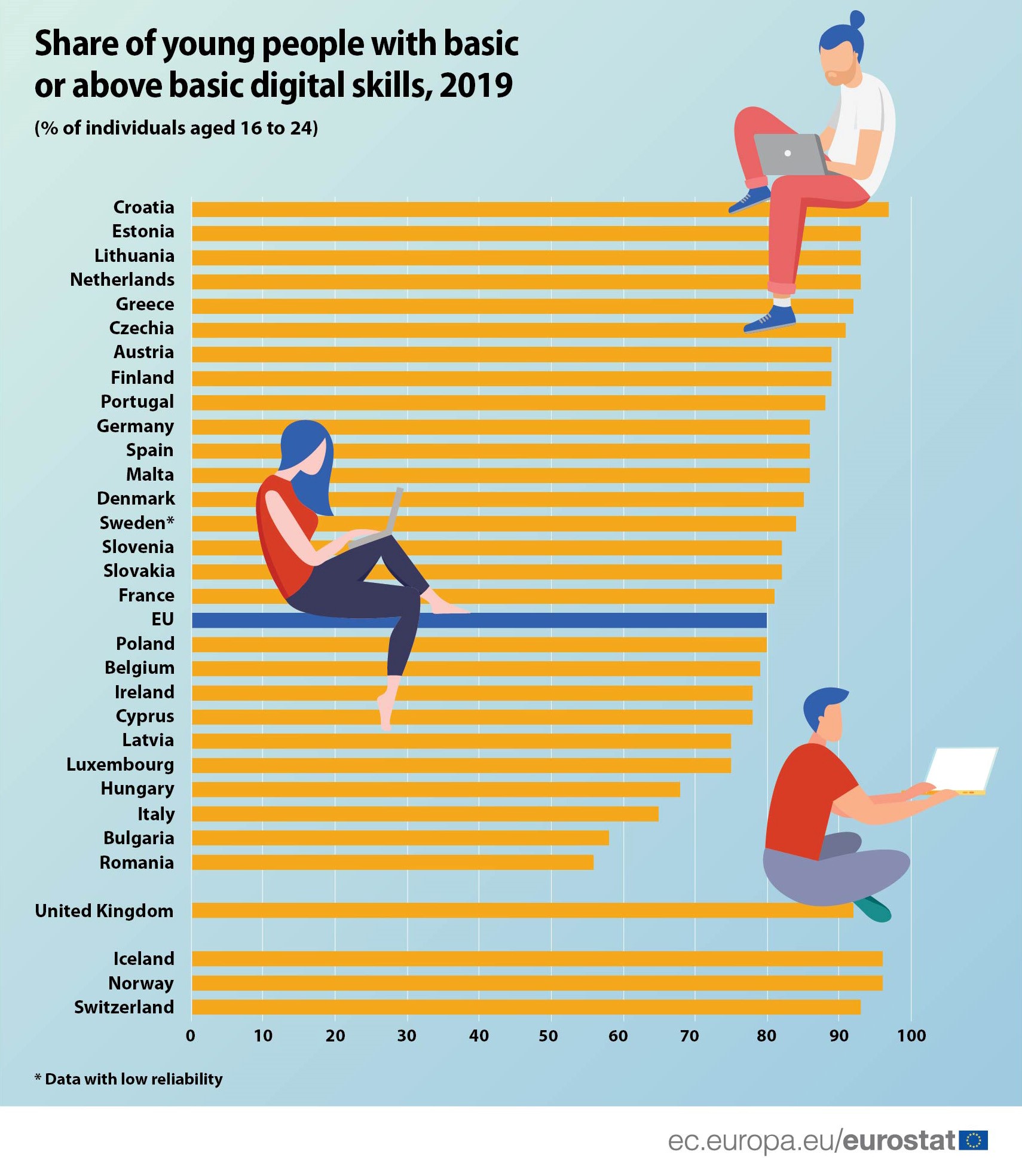Over recent months, many young people have had to follow online classes, as lockdown measures associated with the Covid-19 pandemic have prevented their schools, universities or other vocational and training institutions from running face-to-face teaching.
Are young people prepared for such online classes, and do they possess the relevant digital skills?
New figures from Eurostat, the European Unions’s statistics department, suggest that in some countries – especially in emerging Europe – the answer is no.
In 2019, four in five young people (or 80 per cent) aged 16 to 24 in the European Union (EU) had basic or above basic digital skills. This was 24 percentage points higher than the share of individuals aged 16 to 74 (56 per cent).
Among EU Member States, Croatia had the highest share of individuals aged 16 to 24 with basic or above basic overall digital skills (an impressive 97 per cent), followed by Estonia, Lithuania and the Netherlands (all on 93 per cent), and Greece on 92 per cent.
By contrast, the lowest shares were observed in Romania (56 per cent), Bulgaria (58 per cent), Italy (65 per cent), Hungary (68 per cent), Latvia and Luxembourg (both 75 per cent).

—
Unlike many news and information platforms, Emerging Europe is free to read, and always will be. There is no paywall here. We are independent, not affiliated with nor representing any political party or business organisation. We want the very best for emerging Europe, nothing more, nothing less. Your support will help us continue to spread the word about this amazing region.
You can contribute here. Thank you.







Add Comment